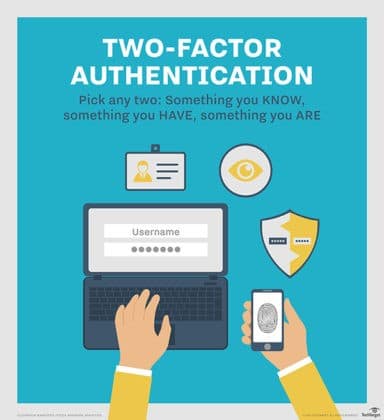How to Make Our Smart Devices Safer
 The biggest nightmare for any IoT provider is the attacks, which can effectively eradicate trust in the products or services of the company responsible for the compromised device. Relying on users to protect themselves with stronger, more complex passwords isn’t going to cut it. Numerous studies have shown that users continue to use weak passwords, even while acknowledging the associated risks.
The biggest nightmare for any IoT provider is the attacks, which can effectively eradicate trust in the products or services of the company responsible for the compromised device. Relying on users to protect themselves with stronger, more complex passwords isn’t going to cut it. Numerous studies have shown that users continue to use weak passwords, even while acknowledging the associated risks.
In order to protect their users and maintain trust in their products, IoT device providers should look to two-factor authentication (2FA) to strengthen account security. There are three recommended steps businesses can take immediately.
Two-factor authentication is already known to be effective in deterring attacks on online accounts, and most 2FA requests happen through a user-friendly mobile interface, such as with a one-time passcode sent through a text message, phone call, or an approve/deny push notification request. (
Two-factor authentication is already known to be effective in deterring attacks on online accounts, and most 2FA requests happen through a user-friendly mobile interface, such as with a one-time passcode sent through a text message, phone call, or an approve/deny push notification request. (Read More)
10 IoT Threats Solution Providers Should Look Out For
 Researchers are finding a plethora of security risks as more devices become connected to the Internet. In a recent report by Kaspersky Lab, the research company found that the number of new IoT malware samples this year has already doubled that of last year.
Researchers are finding a plethora of security risks as more devices become connected to the Internet. In a recent report by Kaspersky Lab, the research company found that the number of new IoT malware samples this year has already doubled that of last year.
According to Kaspersky, connected devices running Linux have attracted 7,200 malware samples from last May, more than double last year’s sample total of 3,200.
Over the past few months, solution providers have seen an array of security attacks – from denial-of-service malware Brickerbot to IP camera-targeted Persirai – crop up in the IoT space.
One Online Security Breach Can Push Bank by $1.75 million: Cyber Security Report
 An incident involving a bank’s online banking services could cost the organisation $1,754,000 (about ₹11.31 crore), a report by cybersecurity firm Kaspersky has found.
An incident involving a bank’s online banking services could cost the organisation $1,754,000 (about ₹11.31 crore), a report by cybersecurity firm Kaspersky has found.
A study by the security firm showed that 61% of cybersecurity incidents affecting online banking came with additional costs for the institution targeted – including data loss, the loss of brand/company reputation and confidential information becoming leaked among others.
Banking institutions are also worried about the growing menace of cyber attacks. The top concerns for financial services included attacks on digital/online banking services (45%) and point-of-sale (POS) systems (40%), phishing/social engineering of customers (35%), along with attacks on core transactional/back—office systems (35%) and on ATMs (26%).(Read More)











